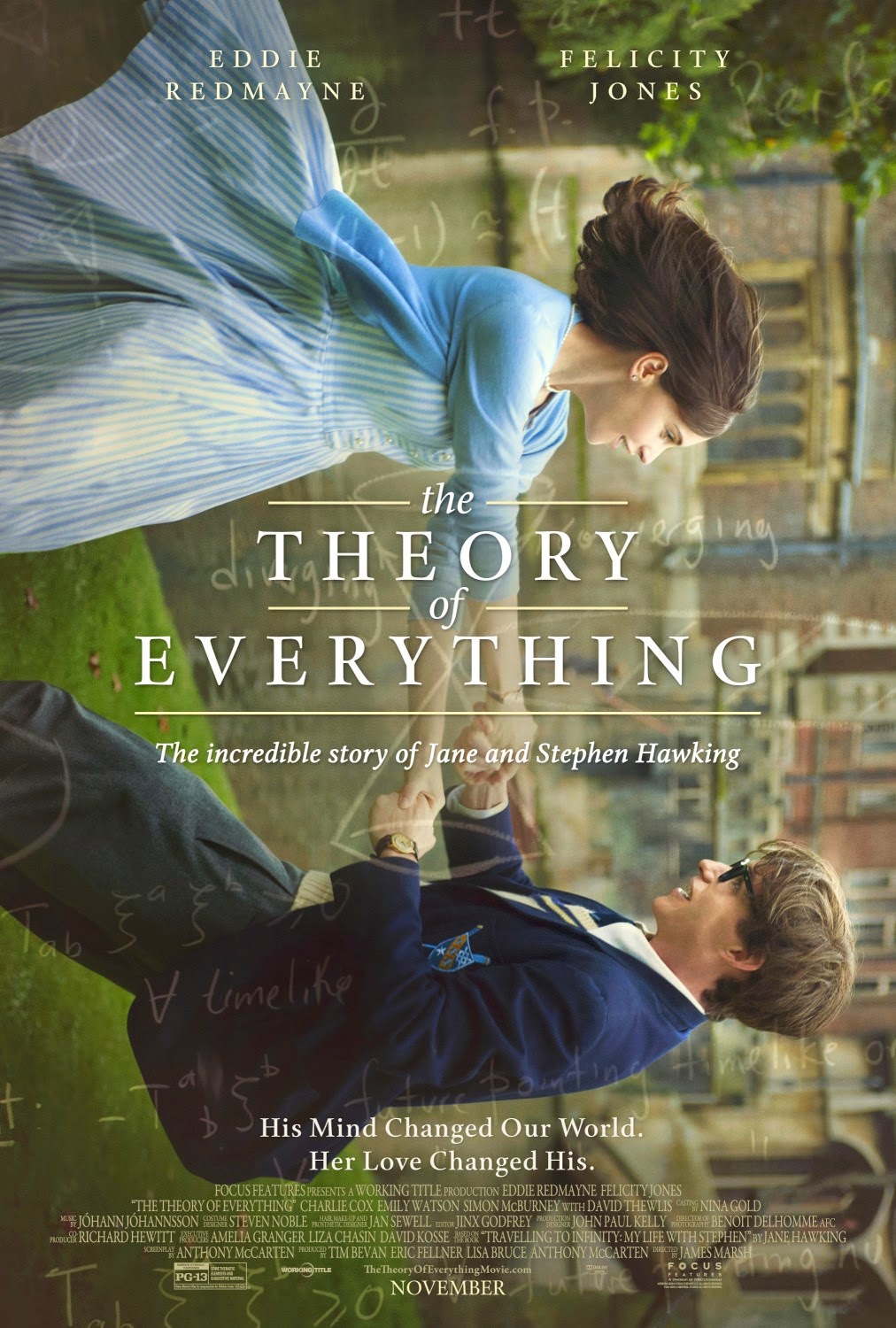The Theory of Everything
I'll tell you what I like about The Theory of Everything: it isn't just some biopic lavishing praise on groundbreaking scientist Stephen Hawking, who devotes his life to studying time; it's a study of what happens to a relationship over time.
 What struck me as I watched was that the story was as much about Jane Hawking (Felicity Jones), Stephen's first wife, as it was about Stephen (Eddie Redmayne). There isn't much about the science, other than Stephen's passion (obsession?) for it. We come to his discoveries, both about the universe and about his medical condition, swiftly, and focus on the couple's life together, challenges and all.
What struck me as I watched was that the story was as much about Jane Hawking (Felicity Jones), Stephen's first wife, as it was about Stephen (Eddie Redmayne). There isn't much about the science, other than Stephen's passion (obsession?) for it. We come to his discoveries, both about the universe and about his medical condition, swiftly, and focus on the couple's life together, challenges and all.That should be expected, seeing as Anthony McCarten's screenplay is adapted from Jane's book about her time with the professor. And I like this point of view. I think we don't see portraits of complex relationships often enough. Here is a film, directed by James Marsh, that portrays life's full complement of emotions. There are inspiring moments, like toward the end when Stephen notes that "there's no boundary to human endeavor," but also challenging ones, like when Jane confronts Stephen about what's happening in their relationship. (Also of note, and complicating things, is the presence of Jonathan (a sensitive Charlie Cox), whose relationship with the Hawkings is significant.)
 Jones is terrific as Jane, a woman who is truly in love and trying to cope with life. Jones brings a nice sincerity to the role, as well as a sense of reserved strength. Tony winner Redmayne (Red, Les Miserables) is fully committed, completely transforming his movements and speech pattern to match Stephen's. And even though Stephen can't speak for a sizable portion of the film, that doesn't mean, in Redmayne's care, he isn't saying anything.
Jones is terrific as Jane, a woman who is truly in love and trying to cope with life. Jones brings a nice sincerity to the role, as well as a sense of reserved strength. Tony winner Redmayne (Red, Les Miserables) is fully committed, completely transforming his movements and speech pattern to match Stephen's. And even though Stephen can't speak for a sizable portion of the film, that doesn't mean, in Redmayne's care, he isn't saying anything.One more thing I like: Some of the most intense scenes are made more intense by a lack of underscoring. Oftentimes music swells to heighten the emotion, to fill in what screenwriters or directors or actors are leaving out. Not so here. Music is used sparingly (but purposefully) so the focus is fully on what's happening. And what's happening is a quest for an explanation of time—our time here on Earth, our time with loved ones and the time it takes for something to begin.

A well-written, well-directed movie an average person like myself can grasp. If I want a more complicated explanation of the universe, then I can refer to Hawking's book, "A Brief History of Time."
ReplyDeleteMarlene
Visit my site for Wall NJ maid service information